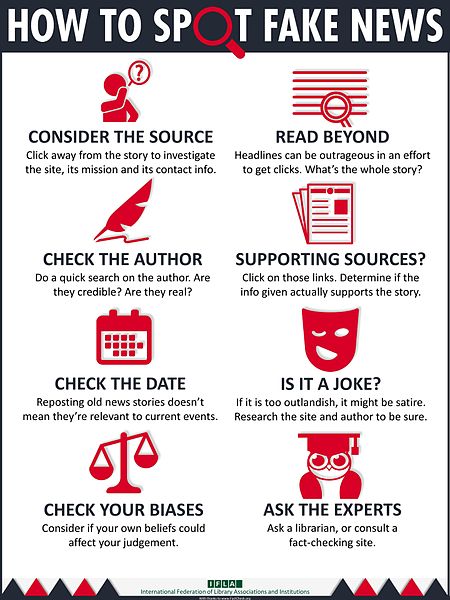Many times, keeping up with the news feels like a chore. The repetitive depressing headlines and the confusing political scandals are enough to turn anyone off from reading any further. With social media and the influx of information, how do you know which resource to trust? Staying informed and educated about world events is crucial for functioning in society, or at least for not looking like an idiot most of the time. Don’t give up on the media yet. Instead, find simple ways to stay informed that work for you.
Check out these smart techniques that will make you the go-to friend for those deep conversations.
1. Change up your social media following

Revamp who you follow on social media, specifically Twitter. News outlets actively posts articles on Twitter, so by following different news organizations, you’ll have live news on your timeline without going out of your way to find the latest updates. Follow news organizations with different biases to get opposing angles for stories (spoiler: everything is biased).
In the Twitter app, you can manage your notifications to get updates for trending news, crisis and emergency alerts, and broadcasts. This is a great resource if you’re not always on the app.
While keeping up with news outlets on Twitter is a strong start, following individual journalists provides better context for stories, according to Taylor Lorenz, internet culture writer for The Atlantic. “Follow journalists, not news outlets,” Lorenz said. “They have better stuff to say than a brand account, and you can tweet journalists back.” While news outlets tweet out stories by their reporters, the reporters actually promote their stories and often times interact with users about their content.
Twitter has really become the journalistic hub of the internet, so often times writers’ put their Twitter handles on their articles, which makes following journalists whose work you like pretty easy. “Don’t be afraid to engage with people if you have questions,” Lorenz said. “But do your research before you ask.” Journalists get bombarded with silly questions about their stories all the time, so don’t be that guy. Make sure you actually read the story first.
2. Three words: Support. Local. Journalism.

Perhaps the golden rule of journalism: support your local news. With the shrinking number of newspaper writers and overall decline of local reporting, people turn to national news, which tends to be more ideologically driven and biased than local.
“Local journalism is one of the most vital institutions we’ve got left and it needs everyone’s support,” said Sheridan Hendrix, a reporter for the Columbus Dispatch. “I think people have a responsibility to be informed about the community they live in, and being in college is not an excuse to be ignorant.”
Local news holds local officials accountable, which national news does not do (unless if it’s a really crazy story). It also fosters a sense of community.
3. Pay for subscriptions

Keeping up with your trusted news sites is a good start to getting informed, but actually paying for a subscription tops this. Prices are usually cheap and so worth it. Journalism, and especially local journalism, is a thankless job and quite frankly, democracy depends on it. “A digital subscription to a newspaper is affordable—usually cheaper than Spotify or Netflix,” Hendrix said. “Lots of news outlets give student discounts, too.”
4. Sign up for newsletters

Signing up for email newsletters is an excellent way to quickly catch up with the news. Lorenz cites Casey Newton’s The Interface and What’s Next by Jordan Gonen as two of her top newsletters. “I just really rely on my newsletters so much, especially on a day like today when I have really no free time. I know at the end of the day, the newsletters that I subscribe to will catch me up on [news],” Lorenz said.
Consider signing up for at least one newsletter if you can’t commit to reading full articles or have time to check all your favorite news sites. CNN’s 5 Things email newsletter sends the top five news stories straight to your inbox every morning at 6 a.m., and always includes a “breakfast browse” section at the end with funny and entertaining news topics to start off your morning.
5. Be skeptical

Hold on tightly to your trusted sites and beware fake news, especially on Facebook. If you read a questionable story, don’t blindly share it. “Google key information,” journalism and public opinion PhD candidate at Ohio State George Pearson said. “What comes up? Other articles from reliable sources, or a Snopes post about how it’s nonsense?”
Snopes is a popular fact–checking website and sorts out rumors and fake news on the internet. Media Bias Face Check and FactCheck.org also debunk fake news and detect bias, but you should still learn to be cautious on your own.
“Test the links in a story,” aquatic ecology research assistant at Ohio State Maggie Woodworth said. “When you click on the hyperlink, does it actually take you to a valid source?” Woodworth cautions to scan web articles carefully for missing vital information like date of publication, author and legitimate sources.
Especially be skeptical of news articles that mesh too easily with your personal views. You should really be the most critical of things that you are really excited by, said Dr. James Bonus, a communications research methods professor at Ohio State University.
With election season just underway, expect a major hike in viral fake news stories. Stay alert and use sources like Snopes. Now is the time to acquaint yourself with reliable sources to prepare for upcoming elections and have informed opinions.
Stop hiding during classroom debates and get educated. Act like your freedom depends on it—because it does.

















